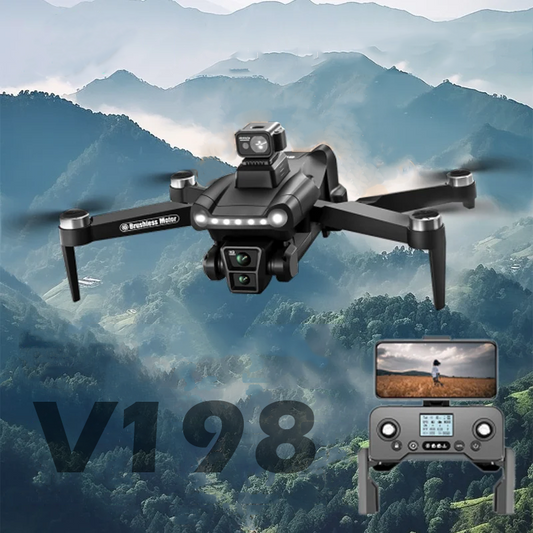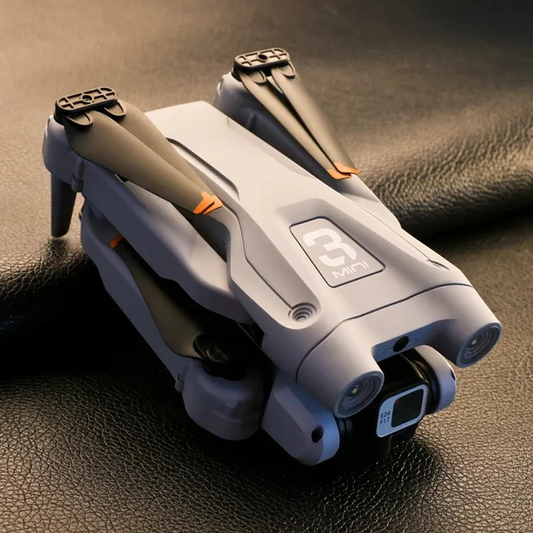Solar-Powered Drones: Green and Sustainable Flight

In a world where environmental consciousness takes center stage, innovation is the key to unlocking sustainable solutions. One such groundbreaking technology that is taking flight, both literally and metaphorically, is the use of solar-powered drones. These eco-friendly marvels are not just about cutting-edge technology; they represent a significant step towards green and sustainable flight. In this article, we'll delve into the fascinating realm of solar-powered drones, exploring their benefits, applications, and the environmental impact that makes them a beacon of hope for the future.
The Rise of Solar-Powered Drones:

As the world grapples with the adverse effects of climate change, industries are seeking ways to reduce their carbon footprint. The aviation sector, notorious for its environmental impact, has turned to solar-powered drones as a viable solution. Unlike conventional drones that rely on traditional fuel sources, solar-powered drones harness the energy of the sun to propel themselves through the skies.
Benefits of Solar-Powered Drones:

1.Clean Energy Source:
One of the primary advantages of solar-powered drones is their reliance on clean, renewable energy. By utilizing solar panels to capture sunlight, these drones convert it into electrical energy, minimizing the need for fossil fuels. This not only reduces the carbon emissions associated with traditional drones but also contributes to the global transition towards a cleaner, greener energy future.
2.Extended Flight Time:
Solar-powered drones have a distinct edge when it comes to endurance. Traditional drones are limited by the capacity of their batteries, often requiring frequent recharging. In contrast, solar-powered drones can operate for extended periods, thanks to continuous energy generation from the sun. This feature makes them ideal for applications that demand prolonged flight times, such as surveillance, monitoring, and data collection.
3.Cost-Efficient Operation:
While the initial investment in solar-powered drone technology may seem substantial, the long-term cost savings are undeniable. By relying on solar energy, operators can significantly reduce fuel and maintenance costs associated with conventional drones. Additionally, the longevity of solar panels ensures a durable and cost-efficient energy source over the drone's lifespan.
Applications of Solar-Powered Drones:
1.Environmental Monitoring:

Solar-powered drones are making a significant impact in environmental monitoring and conservation efforts. Equipped with advanced sensors and cameras, these drones can survey vast areas, tracking changes in ecosystems, wildlife populations, and deforestation. The ability to cover large expanses for extended periods makes them invaluable tools for researchers and conservationists.
2.Precision Agriculture:

Agriculture is another sector benefiting from the adoption of solar-powered drones. These drones can monitor crop health, assess soil conditions, and even facilitate precision crop spraying. By optimizing farming practices, solar-powered drones contribute to increased yields and reduced environmental impact.
3.Disaster Response and Relief:

Solar-powered drones play a crucial role in disaster response and relief efforts. With their extended flight times, they can survey disaster-stricken areas, assess damage, and locate survivors. The real-time data they provide is invaluable for coordinating rescue missions and delivering aid efficiently.
4.Environmental Impact:

The environmental impact of traditional aviation is a growing concern, with emissions contributing to air pollution and climate change. Solar-powered drones offer a more sustainable alternative, significantly reducing the carbon footprint associated with drone operations. As the world strives to meet ambitious carbon reduction targets, the adoption of solar-powered drones aligns with the global push towards sustainable practices.
Challenges and Future Developments:

While the potential of solar-powered drones is promising, there are still challenges to overcome. Weather conditions and limited sunlight hours can affect their performance, especially in regions with inconsistent sunlight. However, ongoing research and development are focused on improving energy storage, efficiency, and the overall reliability of solar-powered drone technology.
The future holds exciting possibilities for solar-powered drones, with advancements in materials and design contributing to increased efficiency. Integrating artificial intelligence for autonomous decision-making and navigation further enhances their capabilities, making them versatile and user-friendly.
Solar-Powered Drones
Solar-powered drones represent a paradigm shift in the aviation industry, offering a sustainable alternative to conventional drone technology. With their ability to harness the power of the sun, these drones contribute to environmental conservation, precision agriculture, and disaster response efforts. As the technology continues to evolve, the widespread adoption of solar-powered drones holds the promise of a greener and more sustainable future. By investing in these innovative solutions, we not only propel ourselves into a new era of flight but also contribute to the collective effort to protect and preserve our planet.
Explore a variety of drones at our online drone store.
Happy Flying!









